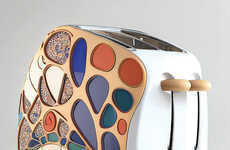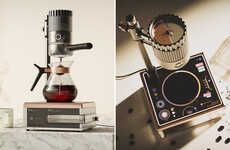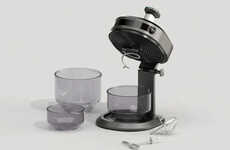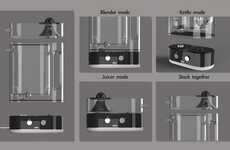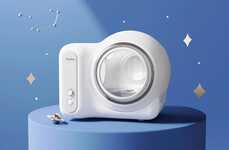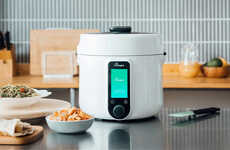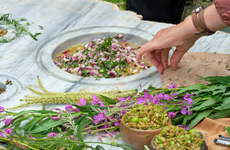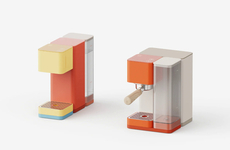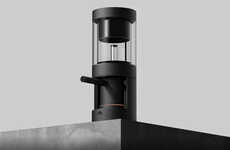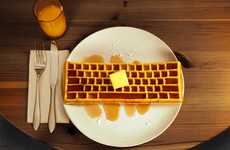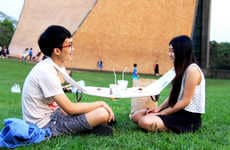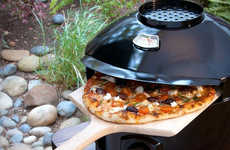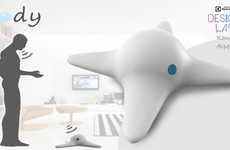
The Domestic Science Machines by Alex Duffner Encourages Experiments
Meghan Young — January 30, 2014 — Art & Design
References: alexduffner & psfk
In a way, people conduct scientific experiments every time they cook and the Domestic Science Machines simply reminds them of this fun fact. Of course, in place of chemicals and test tubes are edible elements and cookware. Yet the latter is being put into question by this project.
The Domestic Science Machines introduce lab equipment into the home in order to create everyday meals and drinks while also doubling as scientific instruments. For instance, a coffee machine is also a functioning spectrometer while a slow cooker can be used to grow DNA. Created by Alex Duffner, a design student at Goldsmiths, University of London, the Domestic Science Machines are nevertheless made out of wood and ceramics to make them more warm and inviting than traditional lab instruments.
The Domestic Science Machines introduce lab equipment into the home in order to create everyday meals and drinks while also doubling as scientific instruments. For instance, a coffee machine is also a functioning spectrometer while a slow cooker can be used to grow DNA. Created by Alex Duffner, a design student at Goldsmiths, University of London, the Domestic Science Machines are nevertheless made out of wood and ceramics to make them more warm and inviting than traditional lab instruments.
Trend Themes
1. Lab-inspired Kitchenware - Opportunity to expand kitchenware products to include lab-like elements for experimentation.
2. Science-based Food and Beverage - Opportunity to develop food and beverage products and experiences that incorporate scientific instruments and principles.
3. Kitchen Science Education - Opportunity to create educational resources and experiences that teach about chemistry and biology through cooking and experimentation.
Industry Implications
1. Kitchenware - The kitchenware industry can incorporate scientific instruments and elements into their products for unique, experimental experiences for customers.
2. Food and Beverage - Food and beverage companies can develop products that incorporate scientific instruments to create unique, scientific experiences for consumers.
3. Education - Educational institutions and companies can develop resources that combine cooking and experimentation to teach chemistry and biology concepts in an engaging way.
6.2
Score
Popularity
Activity
Freshness

